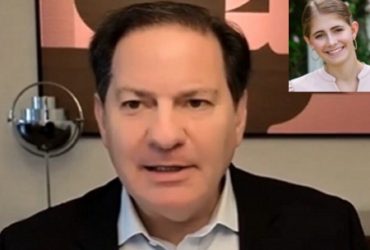PHOTO/Courtesy of ice.gov
The media have recently claimed that President Trump said the Fourth Amendment “doesn’t matter” and that his administration has authorized ICE to enter people’s homes without warrants. However, these claims are misleading. There is no direct quote from President Trump saying the Fourth Amendment is irrelevant. Furthermore, the underlying legal framework for immigration enforcement has not changed under Trump’s second term; it is the continued application of long-existing laws, not the creation of new constitutional exceptions.
Several outlets have reported that a 2025 Department of Justice (DOJ) memo authorized warrantless home entries under the Alien Enemies Act (AEA) for certain immigration enforcement actions. These reports suggest a sweeping disregard for constitutional protections. However, a review of Trump’s public statements, executive orders, and comments from officials like immigration czar Tom Homan shows no evidence that Trump ever said, directly or indirectly, that the Fourth Amendment “doesn’t matter.”
The DOJ memo itself has not been publicly released, and the claims about its contents rely entirely on second-hand reporting. Without access to the full text, it is impossible to verify whether it truly authorizes actions that would violate constitutional protections. As it stands, the media narrative is built on speculation and interpretation, not direct evidence.
The Fourth Amendment protects all persons in the United States against unreasonable searches and seizures, regardless of citizenship status. However, how the Fourth Amendment applies depends on the context. ICE cannot legally enter a private residence without a judicial warrant, the resident’s consent, or exigent circumstances, such as imminent danger or hot pursuit. Administrative warrants issued by ICE officers are not sufficient for entry into a home. In public spaces, such as streets or workplaces, ICE can make arrests based on administrative warrants or probable cause, where Fourth Amendment protections are less stringent. Historically, ICE avoided enforcement actions in sensitive locations such as schools, churches, and hospitals. The Trump administration rescinded this policy in January 2025, allowing enforcement in these locations, although this change did not override Fourth Amendment protections for private homes.
Thus, entering homes without a judicial warrant remains illegal. If the DOJ memo truly authorized warrantless home invasions, it would immediately face court challenges. As of now, no such lawsuits have been filed.
The Alien Enemies Act of 1798 grants the President authority to detain and deport nationals of hostile nations during wartime. The Trump administration invoked the AEA to expedite removals of certain Venezuelan nationals associated with the Tren de Aragua gang. While this is a novel application of the AEA, it does not eliminate Fourth Amendment protections. No U.S. law, including the AEA, allows the government to bypass constitutional rights without judicial oversight.
Applying the AEA in immigration enforcement is controversial but legal. It is important to distinguish between new applications of existing statutes and the false claim that Trump has created entirely new legal standards.
Another critical fact often overlooked by the media is that ICE cannot issue judicial warrants. ICE officers are part of the executive branch and can only issue administrative warrants, which are internal agency documents. Judicial warrants must be issued by a federal judge or magistrate. This structural reality has existed under every administration since ICE’s creation in 2003. Trump did not invent this system.
Additionally, immigration raids, expedited removals, and workplace sweeps are not Trump-era innovations. They have long been authorized under the Immigration and Nationality Act (INA) and were widely used during the Bush, Obama, and Biden administrations. What has changed under Trump is the scale and intensity of enforcement — not the constitutional rules themselves.
Under President Obama, ICE deported hundreds of thousands of individuals annually, including parents of U.S. citizen children. Under President Biden, mass deportations of Haitian migrants under Title 42 also led to widespread family separations. These actions did not provoke the same level of media outrage as Trump’s policies. The selective outrage reveals that the issue is less about constitutional protections and more about political narratives.
President Trump’s immigration policies represent an escalation of enforcement priorities, not the invention of new constitutional interpretations. The legal basis for ICE operations remains the same as under previous administrations. The claim that Trump has “abolished” the Fourth Amendment is pure media spin without factual basis. While concerns about overreach can be debated, any allegation that the Constitution has been suspended should be treated with skepticism unless backed by primary evidence — which, in this case, it is not.
If the DOJ memo truly authorized illegal actions, it would be immediately challenged in court. Until then, the portrayal of Trump’s immigration policies as a constitutional crisis is more about politics than about law.
The post The Fourth Amendment, ICE Raids, and How the Media Twisted Trump’s Words appeared first on The Gateway Pundit.











